QuestionMy Betta has been acting strange for a while now. He first started by sitting on the bottom and now he just floats at the top. He will not eat. He will swim around only if he is made to, by tapping on the glass. Everyday I feel he is going to die, but he keeps hanging on. We tried ick medicine, but nothing seems to be helping. When he tries to swim towards the bottom it looks like he has a hard time. Almost as if he has a life vest on, and back up to the top he goes to sit motionless for hours at a time.I appreciate any help you can give me. Thank You David
Answerhow long have you had your betta?
they live very short lives so he may be suffering through old age and it may just be his time to go??
otherwise it sounds like he has swim bladder disease..is usually fatal unless treated
SWIM BLADDER DISEASE
Symptoms: Erratic Swimming Position
Loss of equilibrium
Fish will be unable to maintain buoyancy
Swim Bladder Disease General Description
Swim bladder disease is a multifactorial illness which primarily affects ornamental goldfish which have globoid body shapes, like orandas, ryukins, and fantails. It most often presents as a fish which floats at the surface, or a fish which stays on the bottom and doesn't seem to be able to easily rise. A fish which has normal buoyancy but is listing to one side or the other often does not have swim bladder disease, but may have other diseases.
Swim Bladder Disease Treatments
This is a problem more common in fancy goldfish, and there is no cure for it. Feeding medicated food (see bottom of page), adding salt to the tank, feeding peas, and raising the temperature to 76 degrees may help but only for a short time. Eventually the fish may be unable to eat and will have to be euthanized.
Feed your fish a couple of peas. That's right, peas. Just get some frozen peas, thaw them, and feed them to your fish. A professor of fish medicine at N.C. State College of Veterinary Medicine has done this in several cases with very good results. He thinks that the peas somehow encourage destruction of the impaction. No hard scientific data yet, but it's worth a try.
Fast your fish for a couple of days. Withhold all food for three or four days, and sometimes this alone will break up the impaction and return things to normal. Most fish can go a week to ten days without food and be just fine.
Periodic aspiration of the swim bladder works very well. Basically, you stick a needle in the swim bladder and suck out some of the air. Not something to be entered into lightly, but does work well. This is not a cure, but a successful treatment. The head veterinarian at the Baltimore Aquarium prefers this method.
Swim Bladder Disease Prevention
As always, the golden rule of fish disease is Water Quality. If swim bladder disease does have an infectious cause, your fish will be better able to resist this infection (and others) if your water quality is good. Regular water changes and water testing are a must.
Pre-soak your flake or pelleted food. This will allow expansion to occur prior to the fish eating it, and will lessen the chance of impaction.
Even better, switch to a gel-based food or other food source, i.e. frozen or live food

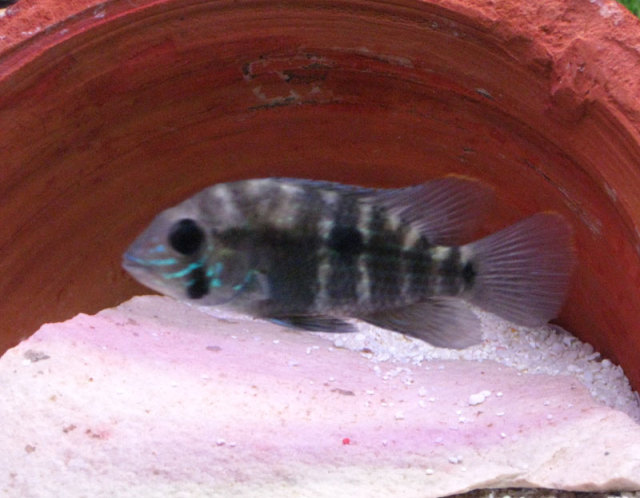 identifying my fish
Question
1
Hello, I would like to know if this fish is
identifying my fish
Question
1
Hello, I would like to know if this fish is
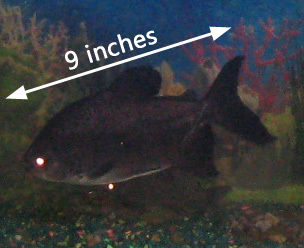 Inherited large fish & tank, what are they?
Question
Mystery Fish
I inherited a huge fish tank with
Inherited large fish & tank, what are they?
Question
Mystery Fish
I inherited a huge fish tank with
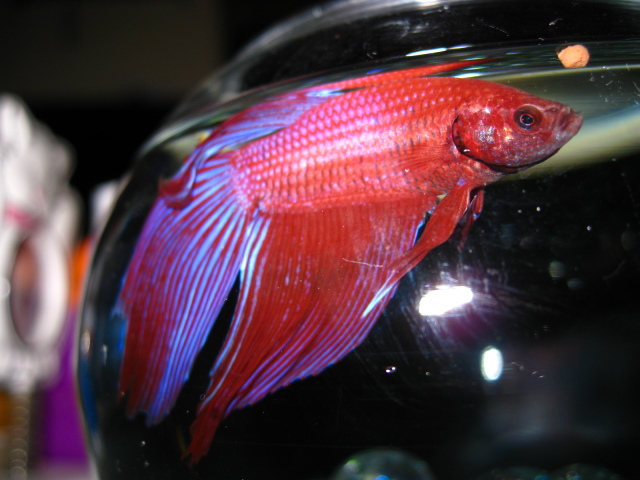 Betta Fish wont eat.
QuestionPeso
QUESTION: On March 4th, a friend ga
Betta Fish wont eat.
QuestionPeso
QUESTION: On March 4th, a friend ga
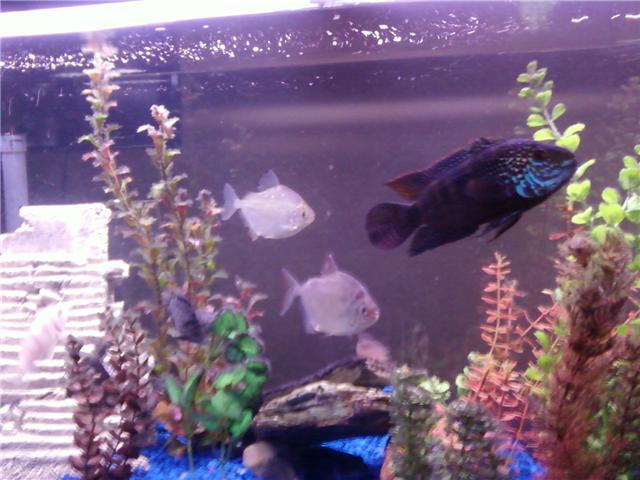 cichlid wont eat
Question
my fish
i have a large jack dempsy cichlid may
cichlid wont eat
Question
my fish
i have a large jack dempsy cichlid may
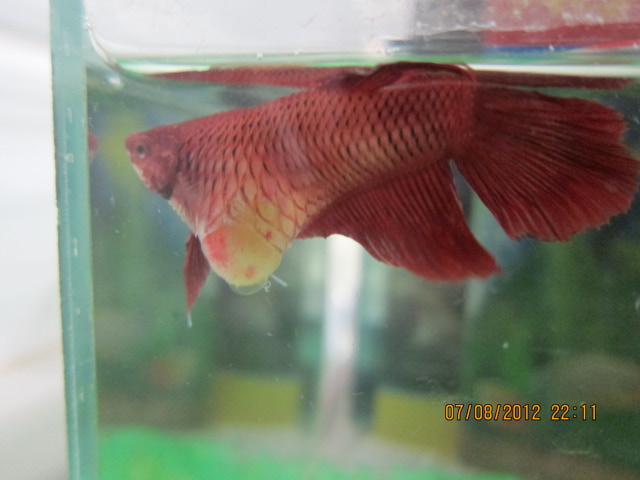 Bloated Belly
Question
My Beta fish Bloated Belly
Hello
Bloated Belly
Question
My Beta fish Bloated Belly
Hello